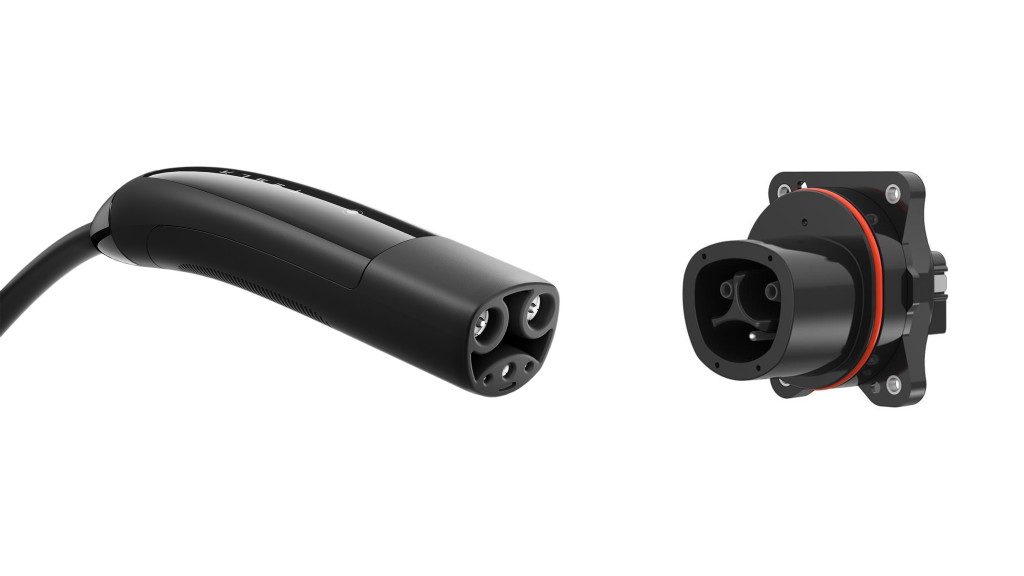Rival automakers have been permitted to implement Tesla's propriety charging connector in their own vehicles since last November. Now, Ford is shaping up to be among the first to take advantage of the offer.
The Blue Oval announced on Thursday that its next-generation electric vehicles, set to arrive starting in 2025, will come with built-in Tesla connectors, known as the North American Charging Standard (NACS). This will eliminate the need for an adapter when using one of the many Tesla Supercharger DC fast chargers.
As first announced by the White House in February, and later confirmed by Tesla, select charging stations belonging to Tesla in the U.S. will be opened up to vehicles from rival brands, with Tesla in return gaining a slice of federal money targeted at building up EV charging infrastructure.
Some locations have already opened and Tesla has said it is committed to providing access to 7,500 individual chargers by the end of 2024, of which at least 3,500 will be high-speed Superchargers located along highways. The rest will be slower Level 2 chargers, referred to by Tesla as Destination chargers, found at places like hotels and restaurants. Tesla is also adding the more general Combined Charging Standards (CCS) connector at its stations, so availability of the NACS connector won't be mandatory for using one of Tesla's chargers in the future.

Tesla Supercharger connector - now called NACS
However, Ford in its Thursday announcement said it has reached a deal with Tesla to provide its EV owners with access to more than 12,000 Tesla Superchargers across the U.S. and Canada. Part of the deal includes Ford gaining API access to Tesla's interface, meaning Ford EV owners can use Ford's app to activate charging at Tesla stations.
Add in Ford's own BlueOval Charge Network, which provides access to over 10,000 public DC fast chargers, and owners of Ford EVs will soon have access to one of the biggest networks of fast chargers on the planet.
Ford has been quiet on plans for its next-generation EV lineup, which will be based on a new modular EV platform aptly named the Ford Generation 2 EV platform. At least one will be a pickup truck and another will be a large three-row SUV.
